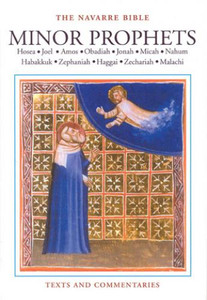
Minor Setback or Major Disaster presents the history of minor seminaries from the concept’s inception following the sixteenth-century Council of Trent’s mandate for a new training method for the Catholic priesthood up to the present. It describes the function and purpose of the “minor seminary,” which initially corresponded to the four high school and two junior college years a young man preparing for the Catholic priesthood would participate prior to his six years at a “major seminary.” It focuses on the unprecedented growth in youthful vocations to the priesthood beginning in the mid-1950s, when teenage boys in the U.S. filled minor seminaries to overflowing, and the concomitant building boom in both minor and major seminary facilities. It describes in detail the seemingly inexplicable decline that began less than a decade later. The historical part of the study concludes in the late 1980s, by which time most minor seminaries – now high school and college seminaries – had closed. This study analyzes the external context of minor seminaries: Catholic boys’ and their parents’ values, and how those values influenced priesthood vocations. The internal context of minor seminaries examines the growth and development of minor seminary pedagogical practices. Supporting the analytical narrative are nineteen figures presenting demographic and enrollment data. Through eight case studies, it postulates causes for the near-total extinction of minor seminaries.What differentiates this study from other studies on the subject of priestly and religious vocations is that there are no “others.” No critical history on this topic exists, which has given commentators over the past half century free license to speculate on causes for the decline in priesthood and religions vocations. As CARA Senior Research Associate Mary L. Gautier, Ph.D., describes it in the book’s Foreword, “Robert Anello systematically presents here an alternative scenario to the common assertion that Vatican II killed off vocations to the priesthood and religious life. Through careful examination of the existing available research of that time period, combined with the CARA statistics that document the trend, this book makes a compelling case that the seeds of the demise of minor seminaries were sown a generation before Vatican II and were already having an impact on vocations by the time Vatican II was set in motion.” Noted Church historian and Professor of History at Marquette University, Fr. Steven Avella, Ph.D., concurred with Dr. Gautier, observing, “This exhaustively researched book tells the fascinating story of a once-thriving system of priestly formation that had already began to fade just prior to Vatican II.”
Product Details:
- Paperback
- 592 pages





